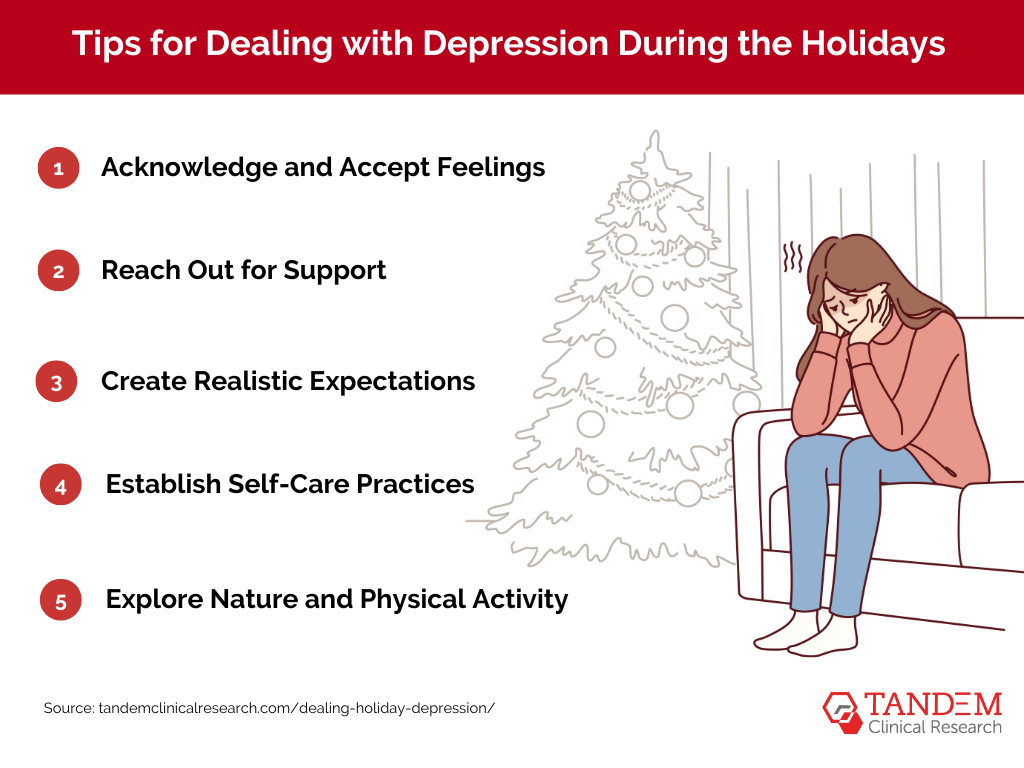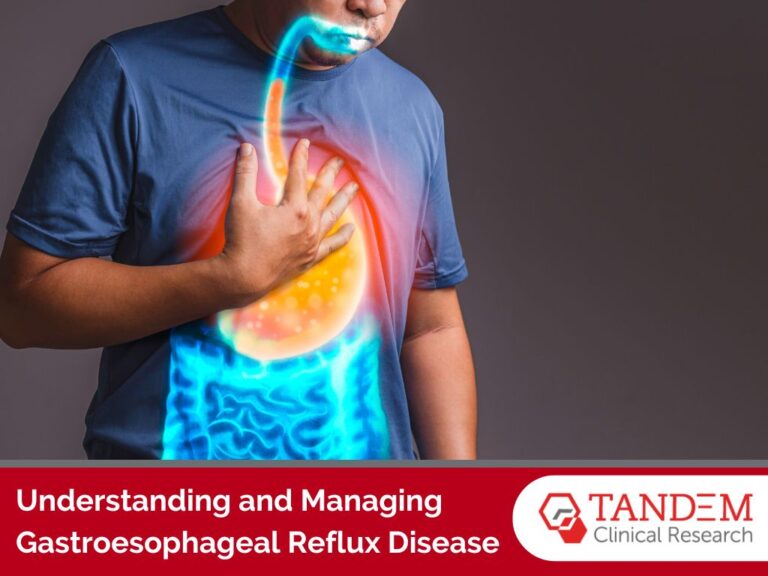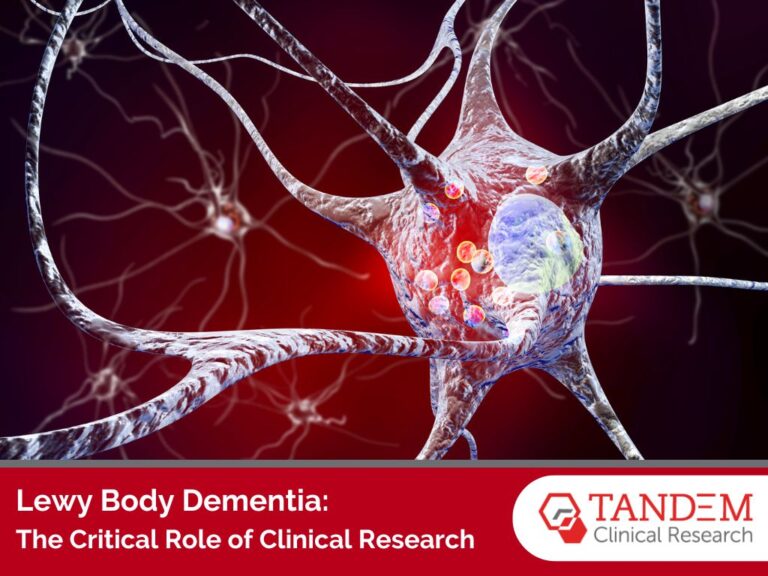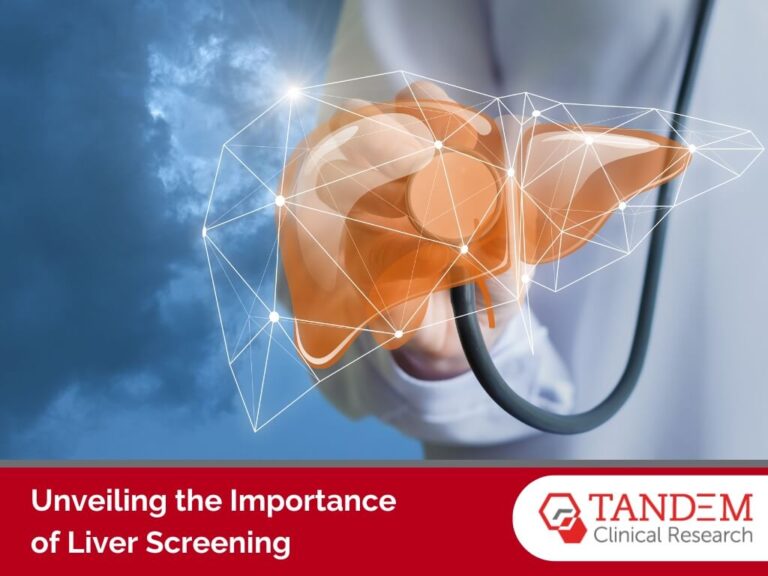
The holiday season, often portrayed as a time of joy and celebration, can be particularly challenging for individuals dealing with depression. The juxtaposition of festive cheer and personal struggles can intensify feelings of isolation and sadness.
However, amidst the difficulties, there is hope. A recent poll found that 45% of Americans would prefer to skip the holidays entirely to avoid the associated stress. This blog explores strategies for coping with depression during the holidays and sheds light on how participating in depression clinical research studies can be a beacon of hope for those seeking innovative solutions.
5 Tips for Dealing with Depression During the Holidays

1. Acknowledge and Accept Feelings
The first step in dealing with depression during the holidays is acknowledging and accepting your feelings. It’s okay not to feel joyous during this season. Give yourself permission to experience and express your emotions without judgment.
2. Reach Out for Support
Isolation can exacerbate depression, especially during the holidays. Reach out to friends, family, or a support group. Share your feelings with someone you trust, and don’t hesitate to seek professional help if needed.

3. Create Realistic Expectations
Manage expectations during the holiday season. Set realistic goals for yourself, understanding that it’s okay if you can’t meet every societal or personal expectation. Focus on small, achievable tasks that bring a sense of accomplishment.
4. Establish Self-Care Practices
Prioritize self-care by incorporating activities that bring you comfort and relaxation. Whether it’s reading a book, taking a warm bath, or practicing mindfulness, finding moments of solace can contribute to a more positive mindset.

5. Explore Nature and Physical Activity
Exercise has been shown to have positive effects on mood and mental well-being. Take a walk in nature, engage in gentle exercises, or try activities that you enjoy. The connection between physical activity and mental health cannot be overstated.
How Depression Clinical Research Studies Can Help

Participating in depression clinical research studies presents a unique opportunity for individuals struggling with depression during the holidays:
1. Access to Cutting-Edge Treatments
Clinical research studies often involve testing new therapies and treatments not yet available to the general public. By participating, individuals gain access to potentially groundbreaking interventions that could significantly improve their symptoms. “The studies we conduct can include new medications or new uses for existing proven medications,” explained Kristen Clinton, BSN, MSN, FNP-C who is an Investigator at Tandem Clinical Research.
2. Expert Guidance and Monitoring
Research studies are conducted under the guidance of experienced professionals who closely monitor participants. This close supervision ensures that individuals receive personalized care, with the added benefit of regular check-ins and support from the research team.
3. Contribution to Scientific Advancements
Engaging in a depression clinical research study means contributing to the collective understanding of depression and its treatment. Participants play a crucial role in advancing scientific knowledge, potentially paving the way for improved treatments and interventions in the future.

While the holiday season can be challenging for those dealing with depression, there are coping strategies and resources available. Seeking support from loved ones, practicing self-care, and considering participation in depression clinical research studies are powerful steps toward finding hope and healing. By taking these steps, individuals can navigate the holiday blues and work towards a brighter, more resilient future.
Match with LBD Research Studies Near You
If you are in the New Orleans’ area and struggling with depression, consider a research study with Tandem Clinical Research. Learn more about current depression studies here.







